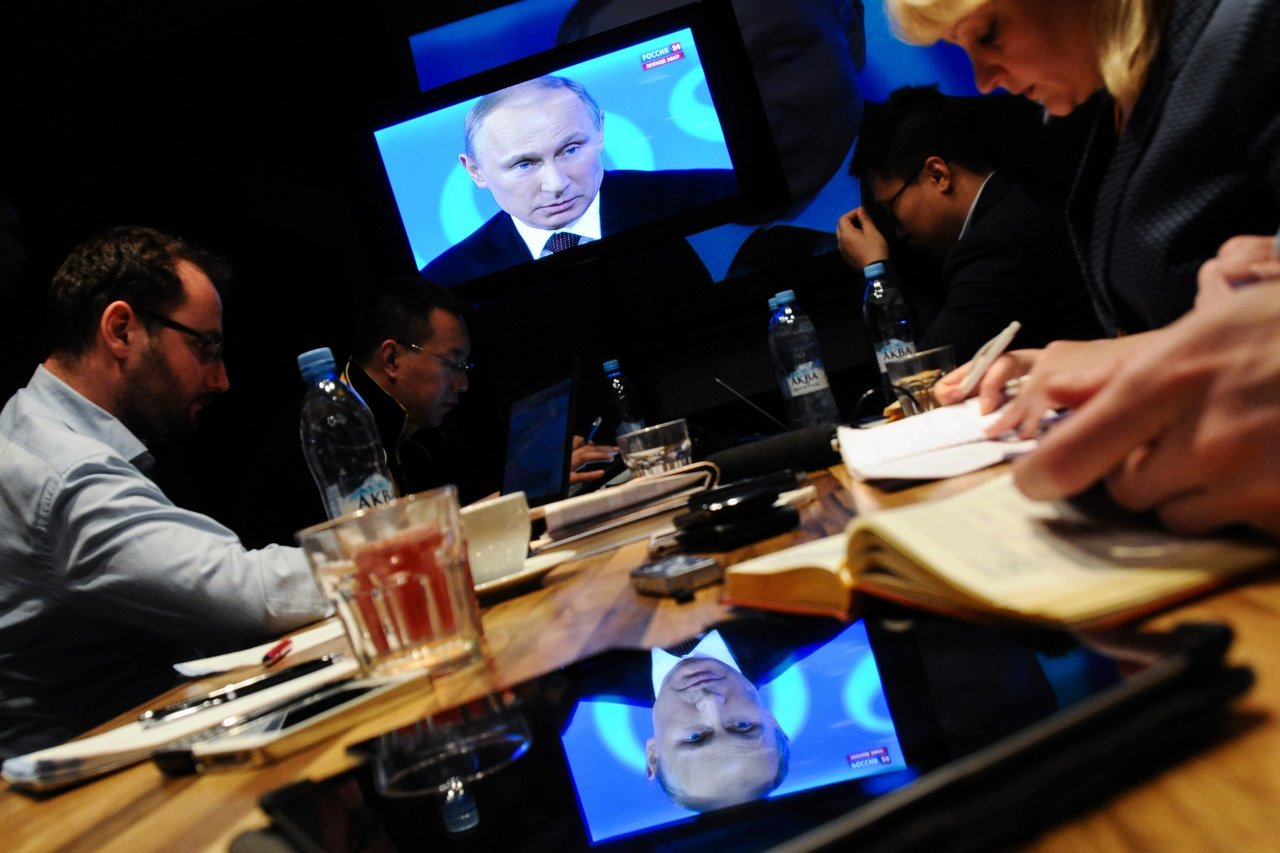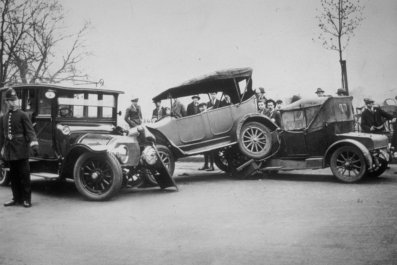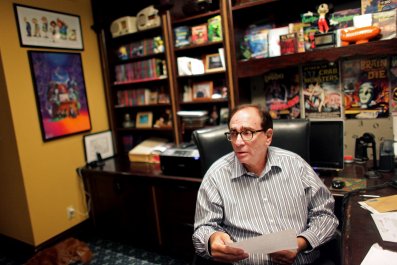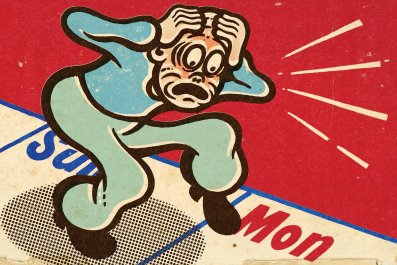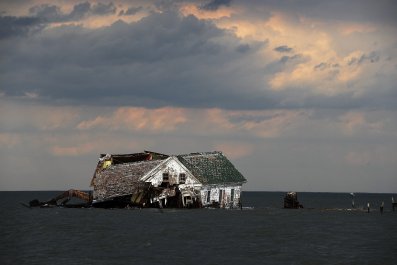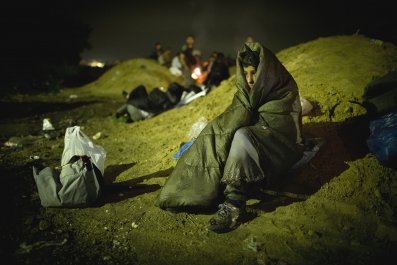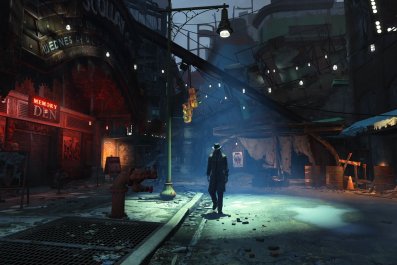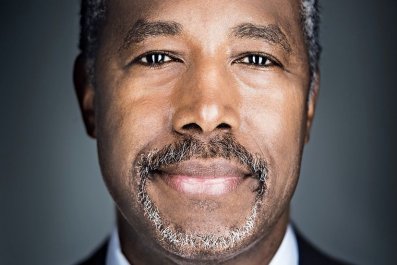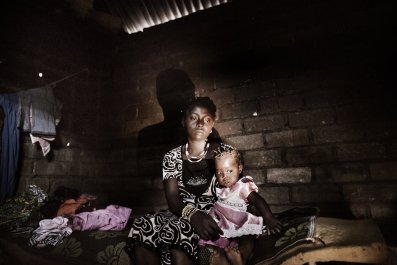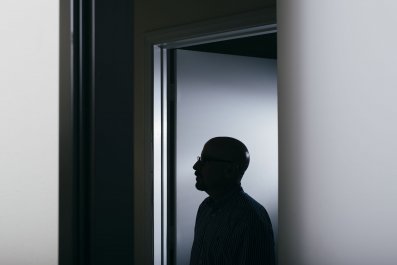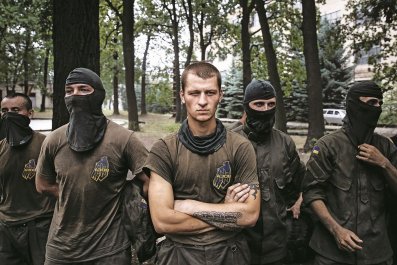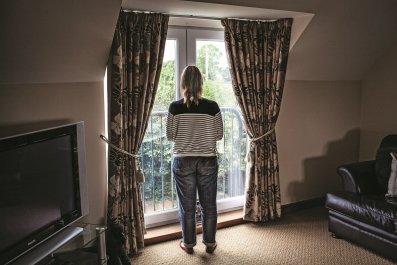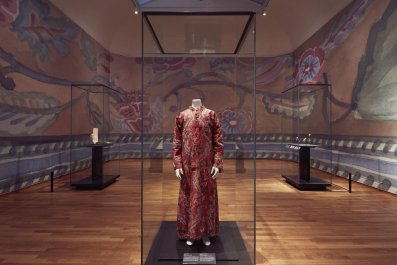When Yekaterina Vologzheninova, a shop assistant from central Russia, shared around half a dozen links about the war in eastern Ukraine with her online friends, she was expecting nothing more than a few heated arguments, at the most.
But her 52 virtual friends on VKontakte, the Facebook of the Russian-speaking world, weren't the only ones following her posts, which included links to Ukrainian-produced documentaries and TV shows sharply critical of the Kremlin. Officers from the Investigative Committee, an FBI-style law enforcement agency answerable only to President Vladimir Putin, were also tracking her online.
In December 2014, Investigative Committee officers, accompanied by agents from the Federal Security Service (FSB), the successor agency to the KGB, raided Vologzheninova's modest apartment in Yekaterinburg, some 900 miles east of Moscow. They seized her computer and digital camera, as well as her 12-year-old daughter's new tablet. They also informed a shocked Vologzheninova that she was being charged with "inciting hatred" of Russian "volunteers" fighting in Ukraine, as well as of Russian authorities.
Vologzheninova, who says she has never been abroad and has around $1,000 in savings, was also placed on a federal list of "terrorists and extremists" that includes groups such as the Islamic State (also known as ISIS) and Al-Qaeda, and her bank account and credit cards have been frozen. Asked about the case, a spokeswoman for the regional prosecutor said posting links to "extremist" material was a criminal offense. Her trial started in mid-October, behind closed doors, and Vologzheninova faces up to four years in jail if found guilty.
"I was simply looking for some alternative views to Russian state-run media's one-sided coverage of the conflict in Ukraine. Nothing that I linked to had previously been classified as extremist by the Russian authorities," Vologzheninova tells Newsweek. "And my online page was set to private, which means only my friends could see the links."
Opposition bloggers say the heavy-handed persecution of Vologzheninova is part of an ongoing bid to silence Russia's vibrant online community. "Cases like Vologzheninova's are intended to frighten others," says Andrei Malgin, one of Russia's most influential opposition bloggers. "It's entirely random, like a lottery. Any one of us could pull the short straw at any moment."
When Putin came to power in 1999, around 1 million Russians were online. Within just over a decade, that figure grew more than fiftyfold. Putin is not an Internet user, and until very recently he was dismissive of the medium, calling it "50 percent porn." Although he clamped down hard on media freedoms from the very first days of his rule, Putin and his Kremlin advisers paid little attention to online dissent. With total control over national TV, still the main source of news for most Russians, there seemed to be little need.
As high-speed Internet became widespread, opposition activists utilized social networks and online tools such as Twitter and YouTube to highlight Russia's ingrained culture of corruption, as well as to attract attention to a range of causes, most notably a campaign to defend ancient woodland near Moscow from a Kremlin-backed highway project. These Internet activists were mockingly dubbed "hamsters from social networks" by government officials, but the growing power of Russia's digital dissidents became evident in the December 2011 parliamentary elections, when online videos of blatant vote-rigging in favor of Putin's United Russia party brought tens of thousands of protesters onto the streets of Moscow. "I am an Internet hamster, and I will gnaw through the throats of those swine!" screamed Alexei Navalny, the popular anti-corruption blogger, as online anger transformed into offline fury.
Stung by what Putin said was a U.S.-backed plot to topple him, the Kremlin struck back against its Internet-savvy foes. "Putin saw that the Internet was capable of mobilizing massive amounts of discontented people in a short time," says Malgin, the opposition blogger. "He realized that it wasn't enough just to seize control of all media outlets—he had to control the Internet as well."
Since the protests of 2011-2012, Putin has approved a swath of laws that have made online dissent more dangerous. Criminal charges against "extremist" bloggers and Internet users have become commonplace. Opposition websites, including that of chess champion and Kremlin critic Garry Kasparov, have been blocked. Thousands of government-financed Internet "trolls" are employed to produce online praise of Putin and pen hate-filled posts against his enemies. Pavel Durov, the young, rebellious founder of VKontakte, the popular social media site that played a major role in the post-election protests, has been forced out of the country and his company turned over to Kremlin loyalists. In late October, the U.S.-based democracy watchdog Freedom House downgraded its rating on Russia's Internet to "Not Free" in 2015 from "Partly Free" in 2014.
And the laws keep coming. Under vaguely worded proposed legislation that could be approved by the Kremlin this month, the FSB will gain the power to summon for "precautionary discussions" those whose behavior—online or offline—suggests they may be likely to commit an "extremist" act. For Vologzheninova, a middle-aged woman facing jail over her online posts, laws such as this are an absurdity. "Russian state television is itself extremist," she says. "Its broadcasts have provoked a wave of hatred against Ukrainians."
The Kremlin has also moved against foreign-owned social networking sites. A law due to come into force on January 1, 2016, will force tech companies to store the data they hold on Russian users within the country. Those that fail to comply could be blocked. Although discussions are still ongoing, reports suggest that Facebook, which has around 13 million users in Russia, will refuse to agree with the Kremlin's demand.
Putin also appears to be looking for an Internet "off switch" in the event of mass protests triggered by Russia's growing economic woes. In October, an industry insider claimed that Russia's Internet regulator, Roskomnadzor, had experimented with ways of isolating the country from the World Wide Web. Roskomnadzor denied the report. Later that month, Russia's communications minister, Nikolai Nikiforov, flew to Tehran to visit his Iranian counterpart. The official reason for Nikiforov's trip was to discuss the opening of an office by Yandex, the Internet company that runs Russia's biggest online search engine. But Yandex subsequently announced it had no plans to develop its business in Iran, fueling speculation that the real reason for Nikiforov's trip was to find out more about Iranian Internet censorship.
"Putin dreams of a sovereign Internet," said Malgin, the anti-Putin blogger. "But just as soon as Russia is disconnected from the global Internet, everything—industry, science, transport—will cease to function. By halting the spread of undesirable opinions, he will kill off Russia's economy for good."
One thing that won't be stopped, according to Oleg Kozyrev, another well-known opposition blogger, is opposition to Putin. "Russians stopped the [KGB-backed] coup in 1991 without the Internet," he says. "You can't prevent people from communicating."



